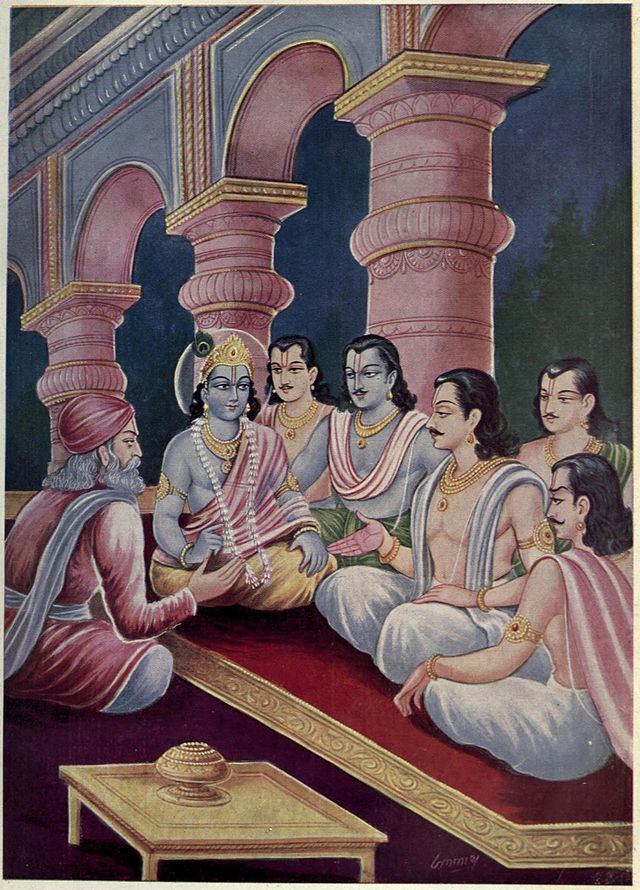loss of vitality
Hindus have been badly infected by a false sense of humility, servility and lack of self-esteem, as a consequence of emphasis on fatalistic, illusionistic philosophy, misguided ahimsa and also been subjected to the inimical values of Islamic and Christian invasions.
It is worth taking note of what Sri Aurobindo wrote in his Notes on the Mahabharata [*emphasis added]:
''Before the Bhagavadgita with its great epic commentary, the Mahabharata of Vyasa, had time deeply to influence the national mind, the heresy of Buddhism seized hold of us.
Buddhism with its exaggerated emphasis on quiescence & the quiescent virtue of self-abnegation, its unwise creation of a separate class of quiescents & illuminati, its sharp distinction between monks & laymen implying the infinite inferiority of the latter, its all too facile admission of men to the higher life and its relegation of worldly action to the lowest importance possible stands at the opposite pole from the gospel of Srikrishna and has had the very effect he deprecates; it has been the author of confusion and the destroyer of the peoples.
Under its influence half the nation moved in the direction of spiritual passivity & negation, the other by a natural reaction plunged deep into a splendid but enervating materialism.
As a result our race lost three parts of its ancient heroic manhood, its grasp on the world, its magnificently ordered polity and its noble social fabric.
It is by clinging to a few spars from the wreck that we have managed to perpetuate our existence, and this we owe to the overthrow of Buddhism by Shankaracharya. But Hinduism has never been able to shake off the deep impress of the religion it vanquished; and therefore though it has managed to survive, it has not succeeded in recovering its old vitalising force.''
''Time, however, in its revolution is turning back on itself and there are signs that if Hinduism is to last and we are not to plunge into the vortex of scientific atheism and the breakdown of moral ideals which is engulfing Europe, it must survive as the religion for which Vedanta, Sankhya & Yoga combined to lay the foundations, which Srikrishna announced & which Vyasa formulated. No apeings or distorted editions of Western religious modes, no Indianised Christianity, no fair rehash of that pale & consumptive shadow English Theism, will suffice to save us.''
-
In another Sri Aurobindo tackles the way wrong is often garbed as right - Sanjay coming on behalf of the Kurus [who have repeatedly cheated their cousins the Pandavas] appealing to their better natures, until Sri Krishna points out their moral deceit:
''Sanjaya has come to the Pandavas from Dhritarashtra and dissuaded them from battle in a speech taught him by that wily & unwise monarch; it is skilfully aimed at the most subtle weakness of the human heart, representing the abandonment of justice & their duty as a holy act of self-abnegation and its pursuit as no better than wholesale murder and parricide.
It is better for the sons of Pandou to be dependents, beggars & exiles all their lives than to enjoy the earth by the slaughter of their brothers, kinsmen and spiritual guides: contemplation is purer & nobler than action & worldly desires.
Although answering firmly to the envoy, the children of Pandou are in their hearts shaken; for as Krishna afterward tells Karna, when the destruction of a nation is at hand wrong comes to men's eyes clothed in the garb of right.
Sanjaya's argument is one Christ & Buddha would have endorsed; Christ & Buddha would have laboured to confirm the Pandavas in their scruples.
On Krishna rests the final word & his answer is such as to shock seriously the conventional ideas of a religious teacher to which Christianity & Buddhism have accustomed us. In a long & powerful speech he deals at great length with Sanjaya's arguments.''
[source: http://incarnateword.in/cwsa/01/notes-on-the-mahabharata]

Bạn đang đọc truyện trên: AzTruyen.Top